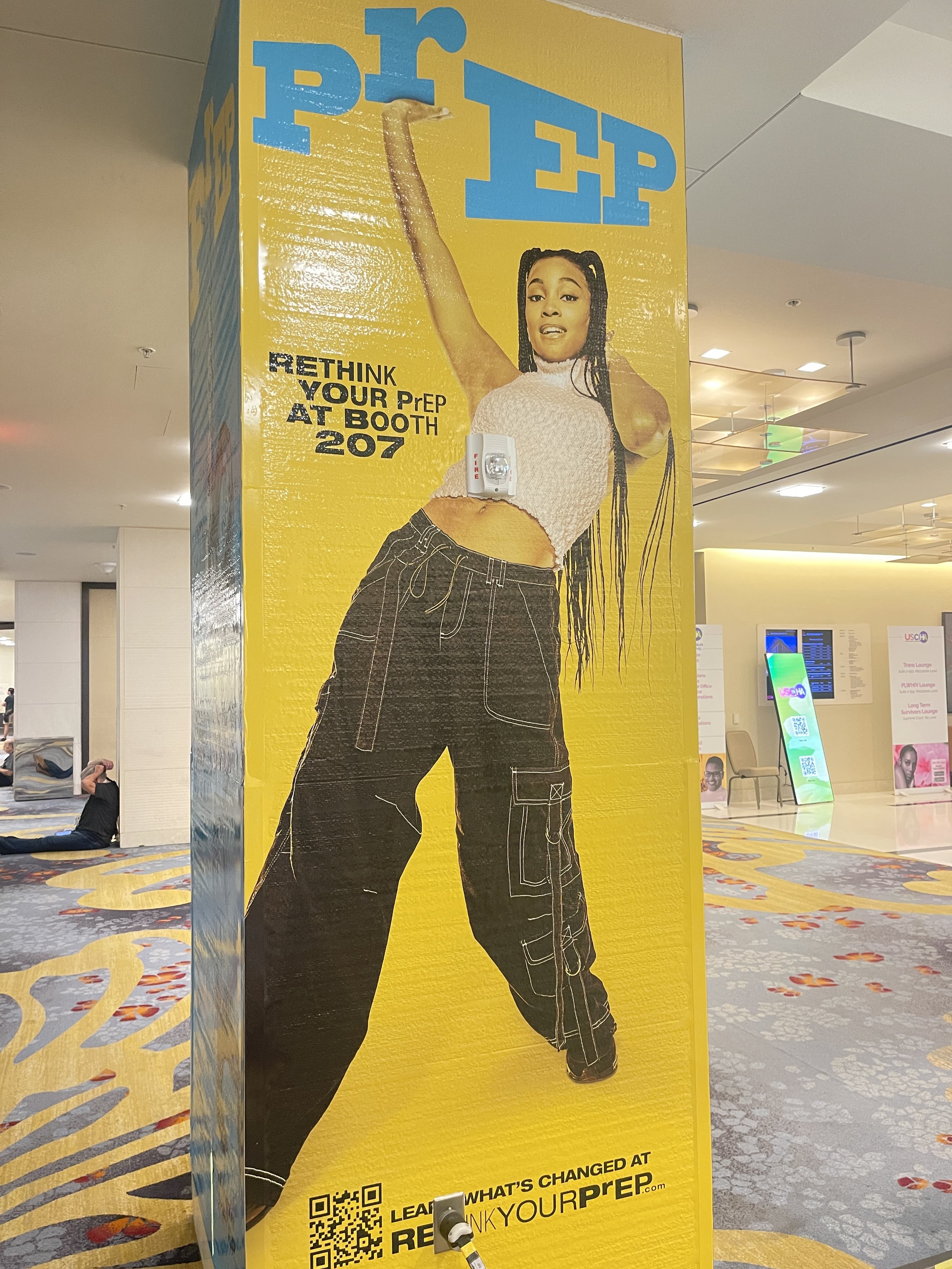Putting Black Women First, A Love Letter to Black Women At USCHA
What does “a love letter to Black women” mean?
In the case of the United States Conference on HIV/AIDS (USCHA), it meant an intentional focus on a group of people that are often left out of the conversations, research, media, and planning around an issue they are disproportionately impacted by; living with HIV/AIDS. It meant representation and centering the voices, joy, experiences, struggles, and feelings of Black women within the epidemic, especially Black women living with HIV of cis- and trans-experience. It meant kicking off the conference with an opening plenary that shone a light on Black female Dandelions (as they asked to be called), who are women that were born with and are life-long survivors of HIV. It meant a special exhibit and special focus on “Champions of Change,” ten Black women Changemakers that have made a huge impact over the years. It meant rousing speeches from Black female icons like Congresswomen Maxine Waters — who called out House Republicans for proposals to cut vital HIV funding — and Emmy award winning actress Sheryl Lee Ralph — who spoke about her firsthand experiences of losing those near and dear to her during the early days of the HIV epidemic when she was a stage actress in New York. And for the sake of this blog, it meant accepting an abstract for an oral presentation from two Black women about a stigma reduction campaign aimed at improving care and services for Black women living with HIV.
From September 6-9, 2023, thousands of people living with HIV and people impacted by HIV gathered in Washington D.C. for USCHA, a conference organized by the National Minority AIDS Council (NMAC). Attendees included activists and advocates, service providers, medical practitioners, sex workers, researchers, representatives from community-based organizations and AIDS service organizations (ASOs), government personnel, and even a filmmaker and communications specialist from a small non-profit in New Orleans; our Sr. Director of Media & Communications, Iman Shervington. Iman attended the conference to present with our former project officer from the U.S. Department of Health and Human Services’ (HHS’) Health and Resources Administration (HRSA), Natalie Solomon-Brimage, about the development of a film, research project, and discussion guide featuring the experiences and wisdom of Black women living with HIV in Louisiana.
In 2021 we premiered the
documentary short New Nickels at the New Orleans Film Festival. Thanks to funding from Gilead Sciences and a partnership with the New Orleans Film Society, IWES created this piece with the aim of reducing stigma for Black women living with HIV in the South by sharing pieces of their journeys, in particular their journeys to healing and how they have been emerging from the shadows and entering into the light. As discussed previously here, as a part of HRSA’s Black Women First (BWF) Initiative, in 2022 our Care and Treatment Services (CATS) NOLA program engaged in research to create a stigma reduction campaign aimed at providers of HIV care and services. We conducted formative research with both providers and people living with HIV, and we later decided to combine that research with New Nickels and create a discussion guide that highlights takeaways from the research and the film.
On Friday, September 8, during a two-hour session, Iman and Natalie presented “New Nickels: A Journey of Black Women and HIV Stigma” to over 40 attendees. During the session, Natalie gave a brief overview of HRSA’s BWF initiative and the work it’s done to benefit Black women across the country at multiple sites, as well as an introduction to the New Orleans implementation, CATS NOLA. Iman then spoke about the creation of the documentary and the formative research for the campaign, the creation of the discussion guide and promotional materials (which included showing sample graphics of the materials that sites could print out), IWES’ pilot of the guide and materials with ASOs and HRSA BWF sites, and recommendations for creating media and/or discussion guides featuring folks living with HIV. Following the presentation, they opened up for questions and reflection, which further enriched the session thanks to the bravery of the folks that were willing to speak. One women disclosed her HIV status and spoke about the stigma that she has faced and the need for providers to do better. Another women noticed that there were zero men in the room and wondered why they weren’t there; she also wondered what a screening would be like with only men and how they would react. Some folks spoke about bringing the film to their respective organizations and groups of women living with HIV. And finally, one person encouraged us to share this film in spaces that are not focused on HIV/AIDS so that new people can see and hear from Black women living with HIV and start conversations that can bring further understanding and break down stigma.
Putting Black women first
and centering their voices within the HIV/AIDS realm is crucial to End the Epidemic. As Maxine Walters reminded us, “Yes we are here…and that’s how it’s supposed to be.” Cis- and trans- Black women have been impacted by HIV for a very long time, and we need to recognize, prioritize, and above all respect them within the epidemic so that we can reduce stigma, increase access to PrEP (which means including Black women in studies for new options), get more Black women into care and keep them in care, and ultimately provide better health services. We would like to send a huge thank you to our funders at HRSA for allowing us to do this work and share it across the US and beyond, and for presenting with us about this unique project. We hope to see folks again at USCHA next year in New Orleans (likely at another ballroom session!), and who knows, we may just have another film and discussion guide to share then!





